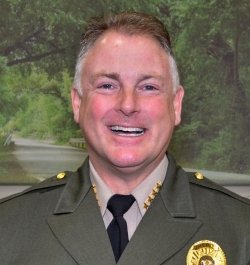
Lantana’s Earth Day festival is coming up on April 25, and the Denton County Sheriff’s Office will have a drug drop of bin on our table, so you can safely get rid of old prescription drugs that you no longer need. It’s easy to forget about old drugs, but it’s one of the most important things you can do to protect your children.
The greatest poisoning danger to our children is the danger of poisoning from articles in the home. However, while cleaning supplies and pesticides do pose a threat, medicines kept in the home, and sometimes even medicines prescribed for the children and teens themselves are often a bigger danger than cleaning supplies and pesticides. Our children see us taking prescription medication, and think if it is okay for us to take the prescriptions, it is okay for them as well.
In addition, teenagers, who have little experience with life and death, are more likely to take risks because they don’t have a true understanding of exactly what risks are involved. Teenagers often choose their friends based on factors other than good judgment, and this can lead to more risky behavior once drugs are in use. Teens don’t realize just how much drugs and alcohol can lower inhibitions and decrease impulse control until it’s too late.
In addition, people who start taking drugs as teenagers are at greater risk than adults of long-term damage because of drug use and abuse. The National Survey on Drug Use and Health (NSDUH) includes nine categories of illicit drug use. In addition the use of marijuana, cocaine, heroin, hallucinogens, and inhalants, as well as the non-medical use of prescription-type pain relievers, tranquilizers, stimulants, and sedatives pose the greatest threats to children and teenagers. The four categories of prescription-type drugs in the study, pain relievers, tranquilizers, stimulants, and sedatives, include numerous medications commonly found in medicine cabinets which can make them easily accessible to youth.
Medicine Safety Tips
• Ask babysitters, visitors, and house guests to keep purses, briefcases or bags that contain medicines up high, away and out of sight from your children. The same rule applies when your children are visiting a friend or relative’s home.
• Tell children what medicine is and why you must be the one to give it to them.
• Never call medicine “candy” to get a child to take it.
• Never leave medicine out on a kitchen counter or at a sick child’s bedside.
• Avoid taking medicine in front of children.
• Clean out the medicine cabinet periodically, and safely dispose of medicines that are expired or no longer needed.
• Always re-lock the safety cap on a medicine bottle. If the medicine has a locking cap that turns, twist it until you hear the click or you cannot twist any more.
• Don’t remove medicine from a child-resistant package and put it in another type of easy to open container.
• Never share or sell your prescription medicines. Make sure your teenagers do not have access to these medicines as well.
• Monitor the use of medicines prescribed for children and teenagers, such as medicines for attention deficit disorder, or ADD.
• Keep medicines in their original bottles or containers whenever possible.
• Store medicines in a place that is too high for a child to reach or see. If possible, ensure the storage location has a safety latch.
Come out to see us at Earth Day, and drop off those unused medicines. Give yourself some peace of mind about the medicines that are in your home. We can’t protect our children from every danger, but we can get rid of the ones in our homes.
For information, see the 2011 National Survey on Drug Use and Health here.






.png)






.jpg)


